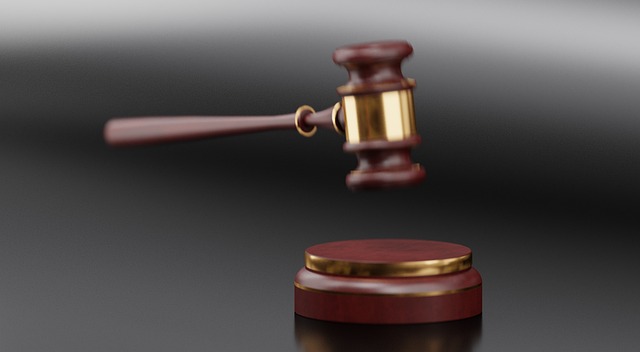Securities regulations profoundly impact environmental crime trial outcomes, serving as a powerful tool for accountability. These regulations, designed to govern financial markets and protect investors, enable prosecutors to link corporate decisions to environmental harm through scrutinized financial records and disclosures. White-collar defense attorneys counter this by challenging regulation interpretations and navigating complex legal landscapes. The intersection of securities and environmental law shapes trial strategies, with successful prosecutions increasing due to stricter penalties and enhanced corporate accountability. This dynamic ensures justice in environmental crime cases while deterring future misconduct.
“Environmental Crime Trials: Uncovering the Legal Landscape and its Impact on Justice
This comprehensive guide explores the intricate world of environmental crime trials, focusing on the intersection of law and ecology. We delve into the legal perspective, analyzing ‘Understanding Environmental Crime Trials’ and their unique challenges. The article examines how ‘Securities Regulations’ play a pivotal role in shaping litigation outcomes, influencing both prosecution strategies and defense perspectives.
From success rates to emerging legal trends, readers will gain insights into the future of environmental justice, especially in light of evolving laws.”
- Understanding Environmental Crime Trials: A Legal Perspective
- The Role of Securities Regulations in Environmental Litigation
- Impact on Prosecution: Success Rates and Strategies
- Defense Perspectives and Common Challenges
- Future Implications: Evolving Laws and Their Effect on Outcomes
Understanding Environmental Crime Trials: A Legal Perspective

Environmental crime trials present a complex legal landscape where securities regulations play a pivotal role in shaping litigation outcomes. These trials often involve high-stakes cases of corporate misconduct, such as pollution, habitat destruction, and false environmental disclosures. The impact of securities regulations is profound, as they govern the financial markets and protect investors, ensuring transparency and accountability. In the context of environmental crimes, these regulations become tools to hold corporations and individuals accountable for their actions or inactions that may have detrimental effects on the environment and public health.
Understanding this legal perspective is crucial when examining white-collar and economic crimes. For his clients facing environmental prosecution, a skilled white-collar defense attorney must navigate these regulatory intricacies. By scrutinizing financial records, corporate policies, and internal communications, lawyers can build robust defenses that challenge the prosecution’s case. This strategic approach not only ensures fairness in trials but also highlights the intricate relationship between securities regulations and environmental crime litigation.
The Role of Securities Regulations in Environmental Litigation

Securities regulations play a pivotal role in environmental litigation, particularly in high-stakes cases where the consequences can be severe. These regulations are designed to ensure transparency and accountability in financial markets, but they also have a significant impact on how environmental crimes are prosecuted. When a company is accused of environmental violations, securities laws can be used as a powerful tool to uncover and expose fraudulent activities. By examining financial records and disclosures, prosecutors can link corporate decisions to potential harm caused to the environment, thereby strengthening their case.
This strategic approach ensures that companies do not merely avoid indictment by complying with environmental regulations superficially. Instead, it forces them to act responsibly and ethically, knowing that their financial decisions are under scrutiny. For general criminal defense attorneys, understanding this intersection between securities and environmental law is crucial. It enables them to build robust defenses for their clients while also promoting a culture of corporate accountability, ensuring that environmental crimes do not go unnoticed or unpunished.
Impact on Prosecution: Success Rates and Strategies

Environmental crime trials have significantly impacted prosecution strategies, with success rates varying widely depending on several factors. One key influencer is how securities regulations come into play; these rules can either strengthen or weaken cases, especially in high-stakes white collar defense scenarios. Prosecutors must navigate complex legal landscapes to build robust cases that stand up to scrutiny.
Successful prosecutions often rely on comprehensive investigations and strategic planning. By understanding the intricate financial aspects of environmental crimes, prosecutors can uncover critical evidence and establish liability. This involves scrutinizing corporate records, examining financial transactions, and tracing the flow of funds related to illegal activities. Such a detailed approach increases the likelihood of securing convictions, demonstrating the profound effect securities regulations can have on litigation outcomes for his clients.
Defense Perspectives and Common Challenges

In Environmental Crime Trials, defense perspectives play a pivotal role in shaping litigation outcomes. One of the primary strategies employed by defendants is to challenge the interpretation of environmental regulations, often arguing that they are vague or overly broad. This approach aims to cast doubt on the applicability of specific laws to their actions, potentially avoiding indictment for crimes that may have been unintentional or due to negligence rather than malicious intent. The complexity arises from the dynamic nature of environmental laws, which can evolve rapidly in response to new scientific discoveries and public pressures, making it challenging for both prosecutors and defendants to keep pace.
The impact of securities regulations on these trials is significant. In many cases, corporations accused of environmental crimes also face parallel charges under securities legislation, alleging misrepresentations or omissions regarding their impact on the environment. How these securities regulations are interpreted can greatly affect the litigation outcomes. An unprecedented track record of successful prosecutions across the country has demonstrated that courts are increasingly holding businesses accountable for their environmental actions, underscoring the importance of transparency and accountability in corporate operations to avoid legal repercussions.
Future Implications: Evolving Laws and Their Effect on Outcomes

As environmental crimes become increasingly recognized for their severe impact on ecosystems and communities, laws are evolving to address these issues more robustly. The future implications of these changes are significant, particularly in terms of how securities regulations impact litigation outcomes. New legislation often introduces stricter penalties and enhanced accountability for corporations involved in environmental misconduct, potentially leading to more successful prosecutions.
This evolution is evident in the increased scrutiny of corporate activities across all stages of the investigative and enforcement process. Securities regulations play a pivotal role here by mandating greater transparency and disclosure, making it harder for companies to conceal their actions. Consequently, this could result in fewer instances of a complete dismissal of all charges, as prosecutors have more tools at their disposal to build compelling cases. Such changes bode well for environmental crime trials, ensuring that justice is served and deterring future transgressions.
Environmental crime trials are complex legal battles that require a multifaceted approach. As we’ve explored, understanding these trials from both a prosecution and defense perspective is crucial. The role of securities regulations in environmental litigation cannot be overstated, as they significantly impact success rates through stringent oversight and innovative strategies. Looking ahead, evolving laws will continue to shape outcomes, underscoring the need for proactive measures to address environmental crimes effectively. By examining these dynamics, we can foster a more sustainable legal landscape that balances accountability with progress. How securities regulations impact litigation outcomes remains a key factor in navigating this intricate field.






